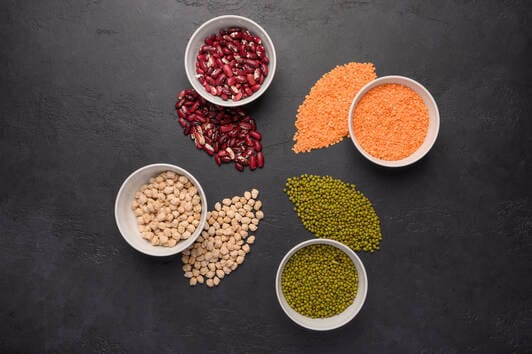The planet’s population is increasing, therefore meat intake continues to rise. Livestock production has negative effects on our environment as meat produces more energy emission per unit than plant-based foods, and livestock production produces methane, affecting the earth’s temperature and climate.
There is no need to cut out meat entirely, however reducing the amount of meat your family consumes is beneficial for the environment and overall health.
Try slowly reducing the amount of meat you eat by implementing one meat-free night per week and then slowly building this up, aiming for 3-4 meat free days per week. You may be asking, what can I eat instead?
Meat substitutes include:–
- Legumes; lentils, chickpeas, butter beans–
- Tofu & tempeh–
- Vegetables e.g. mushrooms, eggplant–
- Cheese e.g. paneer, ricotta–
- Egg
Try this easy roast vegetable recipe, simply add a drained can of chickpeas for a balanced meal.
If reducing your meat consumption is not for you and/or your family at the moment, there are some meats that are considered more sustainable than others. Kangaroo is a high protein, lean meat that requires less feed and water during production than other meats, sustainably caught fish is also another good option. If choosing chicken, try buying free-range. Grass fed beef isn’t necessarily better for the environment overall, given the demand for this has increased over the last few years. Or try adding a can of lentils to your bolognaise to boost plant intake and make the meal go further.

